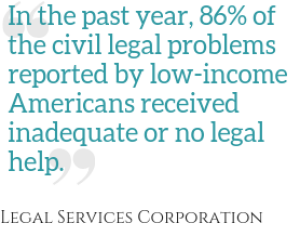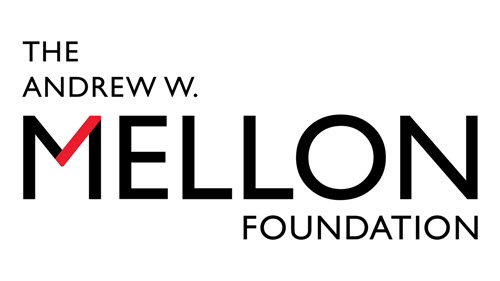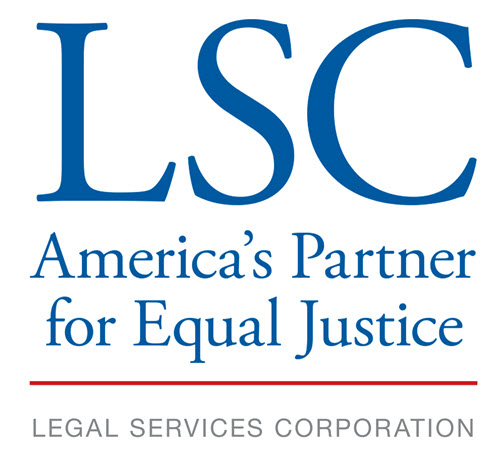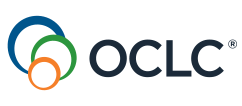Strategic Partnership to Improve Access to Civil Legal Justice through Public Libraries
A National Training Initiative
OCLC’s WebJunction program and the nonprofit organization, Legal Services Corporation, partnered to design and deliver a national online training course to public library staff that strengthened access to civil legal justice through public libraries.
In consultation with Legal Services Corporation (LSC), WebJunction is developing a new course for US public library staff who work in reference, adult services, or outreach positions on how to improve community members’ access to civil legal information and services. The project, which runs through June 2021, will build awareness of the need for better access to civil legal justice. Resources and materials developed by the project will be shared broadly with the public library field. In 2016, as part of a planning project supported by the Andrew W. Mellon Foundation, LSC led an advisory group in exploring the feasibility of online civil legal training for public librarians, and published a "Library Initiative White Paper" with the findings.
Why Civil Legal Information? The Justice Gap
“Justice for all” is a core American value, and yet access to legal assistance is not guaranteed by our civil legal system. Our nation’s poorest individuals are most affected by this reality.
Access to legal resources makes a crucial difference to people when seeking veterans’ benefits, fighting unlawful evictions, maintaining custody of their children, and addressing other challenges involving personal safety, security, and well-being. Rules of civil procedure and evidence, however, were created for lawyers, and court and administrative proceedings are difficult for laypeople to understand. Many people cannot afford a lawyer, and the National Center for State Courts estimates that in 75% of civil cases in state courts, at least one party is unrepresented.
These factors create the justice gap—the difference between the civil legal needs of low-income people and the resources to meet those needs. Although self-help legal resources are available and are increasingly online, these resources do not serve everyone. According to the Pew Research Center, one in four people have inadequate or no internet access at home. Racial minorities, older adults, rural residents, and those with lower levels of income and education are the least likely to have a broadband connection.
Even with access to the internet, many people struggle with the increasingly complex searching and digital literacy skills required to find trustworthy information about their areas of concern. LSC’s 2017 Justice Gap study showed that low-income people research only about one in five of their legal issues online.
Libraries are already contributing to closing the justice gap in various ways, but many are not equipped to address the civil legal issues of their patrons.
Libraries can help close the justice gap by providing:
- more access points to legal information and services,
- more support for navigating the information and services, and
- the skills and ability to identify civil legal issues when they present.
Because of their unique role in our communities, public libraries are well positioned to recognize needs and provide information and services that connect people to civil legal resources and prepare them for civil legal proceedings. We hope you and your staff will join us for the course, which is slated to begin in April 2020. The free training will be accessible to all public libraries regardless of their size or location.
Stay tuned for an informational webinar early next year, and subscribe to our twice-monthly e-newsletter, Crossroads, for more details and announcements about the course.
About Legal Services Corporation (LSC)
LSC is a publicly funded, 501(c)(3) non-profit corporation established by the United States Congress. It seeks to ensure equal access to justice under the law for all Americans by providing funding for civil legal aid to those who otherwise would be unable to afford it. The LSC was created in 1974 with bipartisan congressional sponsorship and the support of the Nixon administration, and is funded through the congressional appropriations process.





